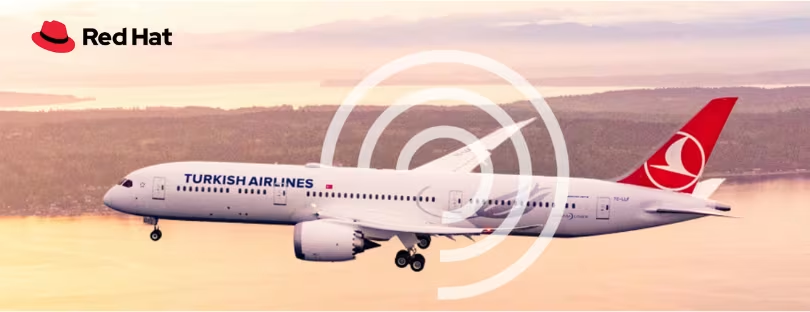
Turkish Airlines Launches AI-Powered In-Flight Chat for Real-Time Passenger Support
Turkish Airlines has introduced a groundbreaking enhancement to its in-flight services: an AI-powered real-time chat system integrated into its new Multimedia Content Platform (MCP) Server. This innovation enables passengers to interact with onboard systems seamlessly via their personal devices or seatback screens, marking a significant step in the airline’s digital transformation. Turkish Airlines AI
This system integrates natural language processing, contextual awareness, and instant content delivery, allowing passengers to ask questions, receive flight details, browse destination information, and even request services—all from their personal device or seat screen.
A Leap Forward in In-Flight Experience
By adopting AI-powered chat functionality, Turkish Airlines aims to enhance the overall in-flight experience. Instead of navigating menus or waiting for crew assistance, passengers can now use intuitive voice or text commands to interact with the airline’s services. Whether it’s checking arrival times, ordering refreshments, or exploring duty-free options, the system offers seamless access without interrupting the journey.
At the core of this advancement is the MCP Server—a proprietary digital platform developed in collaboration with technology partners and integrated with the airline’s existing infrastructure. The server not only enables communication but also ensures content is updated in real time, synced with current flight status, route changes, and even weather reports at the destination.
Turkish Airlines AI – How It Works
The MCP Server functions as a central hub, processing passenger requests and delivering contextually relevant responses. Here’s what passengers can do:
- Ask about current flight time, estimated arrival, or gate information
- Browse city guides, airport transfer options, or lounge access
- Request meal or beverage service from the cabin crew
- View personalized entertainment recommendations
- Receive real-time alerts for turbulence, delays, or weather changes
This interactive approach minimizes reliance on printed materials or manual crew updates, offering a more responsive and eco-friendly model of in-flight communication. The AI chat service is currently available on select international routes, with broader rollout planned throughout 2025.
Strategic Digital Transformation
Turkish Airlines’ investment in MCP and AI-based chat tools is part of its long-term plan to become a global leader in smart aviation services. The airline has already implemented digital boarding, biometric check-in, and dynamic pricing systems. With MCP, it now brings that level of innovation into the cabin environment.
Ahmet Bolat, Chairman of the Board and Executive Committee of Turkish Airlines, has previously emphasized the airline’s vision for a fully digital travel ecosystem. While no direct quotes were provided in the press release, the announcement aligns with past statements about prioritizing technological excellence and enhancing passenger convenience.
AI-supported chat systems are not just a novelty—they represent a shift toward hyper-personalized travel, where the passenger is in control of their own digital journey, assisted by smart systems every step of the way.
Choosing Red Hat for its open source AI platform, Turkish Airlines has been able to improve services in the following ways:
- Improved accuracy of dynamic pricing models for airline ticket sales
- Enhanced models for fraud prevention – whether for customer card payments or via its loyalty program, Miles&Smiles – Turkish Airlines is able to screen with a higher degree of accuracy
- Customer service chatbots, built on Red Hat OpenShift AI and deployed on open source large language models (LLMs), rolled out to boost both customer satisfaction and employee productivity
- Detail assignment optimization, taking into account flight routes, aircraft details and fuel consumption, models can be used to confirm that the correct aircraft is picked for every route, leading to increased fuel consumption savings
- Added insights into operations for smoother service, including improved performance on ground plan prediction, block time prediction, and on-time performance (OTP) prediction, where operations teams are able to act proactively in the event of a bad prediction to minimise delays.
AI initiatives at Turkish Airlines currently span more than 60 live models, with at least 40 more in development. Currently, more than 200 Turkish Airlines employees are working on AI-based development, with the number set to grow. Red Hat was able to help build trust in the platform among Turkish Airlines staff and contribute to its growing use, as well as break down barriers between teams by supporting data scientists in using Red Hat OpenShift AI and Red Hat OpenShift and opening new lines of communication between teams. A more open approach to experimenting and innovating with new technologies is now evident across the organization, primed to support future ambitions and growth.
Future Prospects Turkish Airlines AI
Looking ahead, Turkish Airlines plans to expand the capabilities of its AI-driven services to include features such as language translation, real-time seat upgrades, and interactive shopping experiences. These advancements aim to create a more responsive and connected cabin environment, aligning with the evolving expectations of modern travelers.
With the introduction of real-time AI chat support, Turkish Airlines is setting a new standard in the aviation industry, demonstrating how technology can enhance the passenger experience by providing timely, personalized assistance throughout the flight.
Turkish Airlines’ AI-powered in-flight chat marks a pivotal shift in air travel, blending technology and service to deliver smarter, faster, and more personalized passenger experiences—setting a new benchmark for digital innovation in aviation.










